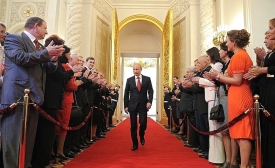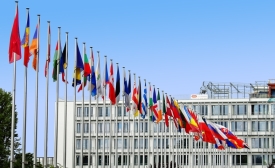public opinion
How do people feel about multicultural policies? Ethnic majorities tend to resent them, and feel less safe in societies with a number of affirmative and rights-based policies, write Pamela Irving Jackson and Peter Doerschler. As a result, governments have come under pressure to ensure policies that tackle inequality benefit everyone. Yet both ethnic majorities and minorities declare themselves happier with their lives and governments when they live in states with multicultural policies.
A majority of Japanese people — 83.8 percent — are concerned the administration of new U.S. President Donald Trump could create global instability, according to a Kyodo News survey conducted Saturday and Sunday. Only 13.1 percent of the respondents to the nationwide telephone survey said they are not concerned about the administration of Trump, who was sworn in on Jan. 20 and is pushing an “America First” agenda on trade and immigration.
Over 200 years ago, President George Washington warned Americans about foreign powers undermining American democracy by tampering “with domestic factions, to practice the arts of seduction, to mislead public opinion, to influence or awe the public councils.” In the present, we are finding that old threats are new again as the United States is challenged by Russia’s strategic communication efforts targeting both our domestic politics and international interests.

Russia's public diplomacy strategy of disinformation displays not soft power but rather "wicked power," writes Erik Nisbet.
This is the early version of what we now call the DIME model of national power — diplomacy, information, military, economic. A July 1945 report from the State Department recognized that the “nature of present day foreign relations makes it essential for the United States to maintain informational activities abroad as an integral part of the conduct of our foreign affairs.”

CPD Research Fellow Jami Fullerton bridges nation branding and public diplomacy through the Model of Country Concept in a new book.







